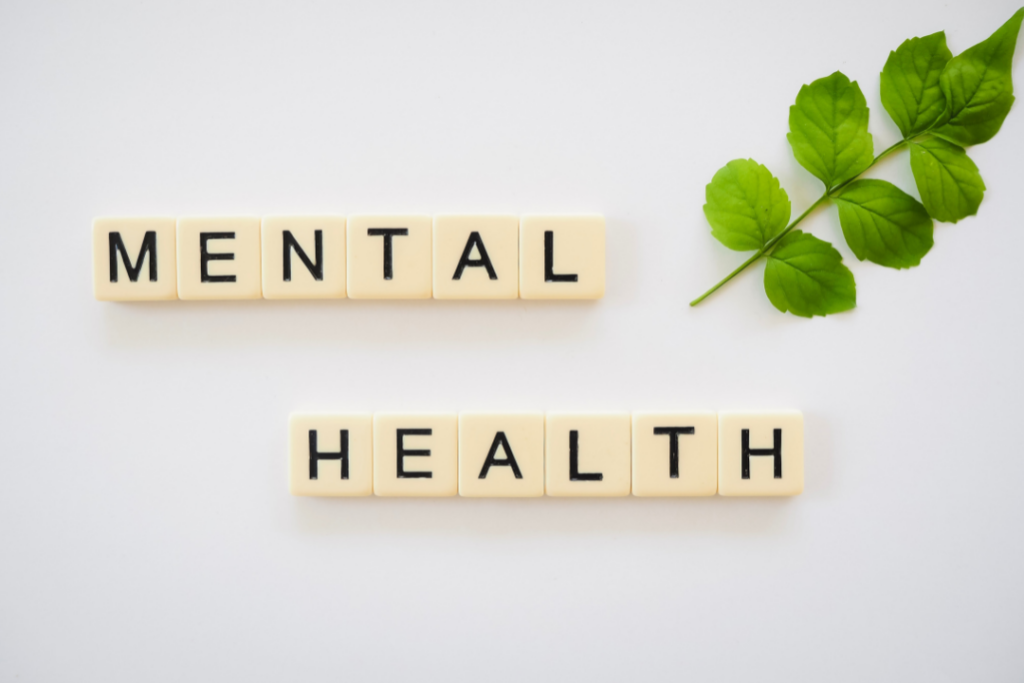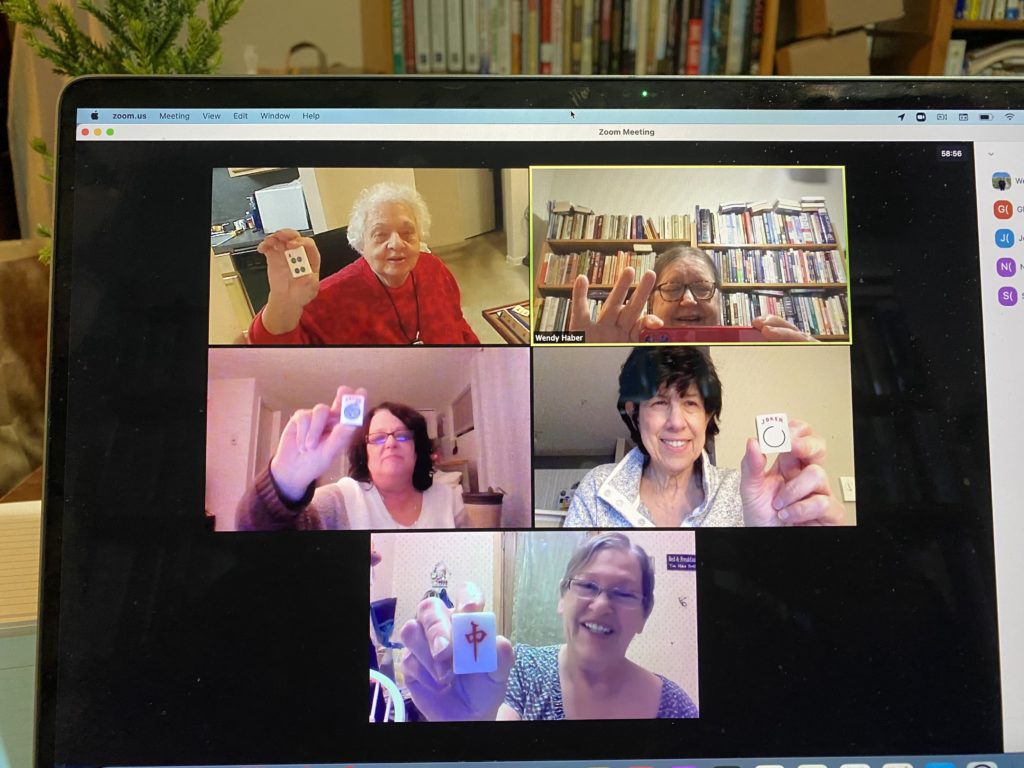Looking after our mental health as we age is crucial if we want to maintain our emotional, psychological, and social well-being. Without it, it becomes difficult to handle stress and anxiety, relate to others, and live fulfilling lives.
This blog post explores ten ways to maintain and improve our mental health. These suggestions will give us the best chance of fighting cognitive decline and help us lead a long and rewarding life.
Soak up the sun
We’re used to hearing how the sun’s rays can damage our skin, but did you know that the right amount of sun exposure can do wonders for our mood and mental health?
When our skin is exposed to sunlight, our brain releases a hormone called serotonin, a chemical that impacts every aspect of our body, from our motor skills and emotions to our sleep and digestion. Serotonin is also considered a “natural mood stabilizer” that helps us feel calm and focussed.
When we don’t receive enough sunlight, our serotonin levels drop. This usually happens because of the changing seasons, particularly in winter, where our exposure to sunlight is reduced.
Some people experience depression during this time, and According to Healthline, panic attacks, insomnia, anxiety-related disorders, and depression have also been linked to the reduced sunlight we take in because of the changing seasons.
So it’s essential we get outdoors and expose our skin to a little sunlight on a regular basis.
Keep a journal
Did you keep a diary as a teenager? If so, cast your mind back to those days you used to write in it. Your diary was where you confessed your fears and poured out your feelings, and afterward, you felt emotionally lighter for doing so.
That’s what journaling is.
It’s the process of emptying your mind of all your thoughts, fears, and feelings by writing them down and getting them out of your head.
For people who experience anxiety, depression, or stress, this is a helpful strategy in helping them get their emotions under control. People experience feeling calm after offloading all their concerns to the page. It’s akin to speaking and sharing your concerns with a close, non-judgemental friend.

Some helpful tips to help you get started:
- Make it a daily ritual: Try to write daily, even for a few minutes.
- Write whatever comes to mind: If you’re having a difficult day, write about what has happened and how it’s made you feel. Always be honest with yourself and let your thoughts and feelings flow freely.
- Use journaling prompts: Sometimes, knowing where to start is hard. Goggle “journal prompts” for a list of questions to help get your juices flowing.
- Forget perfection: Don’t be afraid to make grammatical or spelling errors. This extends to your journal’s structure. Write in paragraphs or bullet points. Doodle. Use colored pens, or not. Write in a way that makes sense to you. Remember, journaling is a private practice where no one will judge you for what or how you write.
Socialize regularly
Research conducted by the late John T. Cacioppo, Ph.D. (former director of the Center for Cognitive and Social Neuroscience at the University of Chicago) found that people who experienced social isolation and loneliness were at a higher risk of developing certain physical and mental conditions. The conditions included high blood pressure, obesity, heart disease, anxiety, depression, Alzheimer’s disease, a weakened immune system, cognitive decline, and even death.
Loneliness is so detrimental to our health that it has even been deemed the “epidemic of the 21st century.”
The good news is that it’s not all doom and gloom.
Meeting with friends and family on a regular basis plays a critical role in helping us combat feelings of loneliness and social isolation, and by extension, helps ward off a host of mental and physical disorders!
No matter how old you are, it’s never too late to reconnect with old acquaintances or develop new friendships. If you’re interested in the latter, there are many social groups, clubs, and interest-based organizations you can join. Stitch is one such community, dedicated to connecting like-minded individuals who are over 50.
Get active
We’ve all been told of the benefits of exercise on our physical health. From maintaining our weight, building our strength, and helping fight heart disease and diabetes, moving our bodies is one of the most important ways to keep our physical body functioning efficiently.
Exercise also does wonders for our mental health, which is why it’s imperative we continue moving our bodies as we get older.
For starters, exercise produces a natural high. Have you ever felt an uplift in your mood after exercising? That’s because doing so directly impacts your mood.
Exercise produces endorphins, otherwise known as the “feel good” hormone, which relieves our stress and makes us feel happy and confident. That is why exercise is great for people who experience depression and anxiety, as it helps them manage their stress and uplift their mood.
Exercise also plays a part in keeping our minds sharp and our memory intact. Moving our bodies pumps blood to the brain, helping us think more clearly. It also increases the connections between our brain’s nerve cells, helping protect our memory.
As we get older, it’s only natural that we worry about dementia and if we’ll fall prey to it. The good news is that multiple ongoing studies suggest that physically active people have a lower risk of developing dementia.
Care for an animal
One less obvious way to look after our mental health is to care for an animal.
According to the Centers for Disease Control and Prevention, the connection between people and their pets is linked to several health benefits, including: Decreased blood pressure, cholesterol levels, triglyceride levels, feelings of loneliness, anxiety, depression, and symptoms of PTSD.
In a clinical trial published in 1988, 60 people were told to interact with dogs while their blood pressure and heart rate were recorded automatically. It was revealed that people’s blood pressure was lowest while petting the dog, and their heart rate was lowest while petting and talking to the dog.
When our blood pressure decreases, so does our stress hormone, cortisol, making us feel calmer. The above research is promising, revealing the calming effect of simply petting and talking to a dog!

Let’s not forget that our pets increase our opportunities for exercise and outdoor activities, and as we’ve learned above, being physically active plays an essential role in keeping us mentally healthy.
If you don’t have a pet or are not in a position to be able to get one, volunteering at an animal shelter can be just as beneficial!
Play games
Maintaining our cognitive health – our ability to think, learn, and remember – is critical if we wish to protect our mental health as we age, especially as this is linked to our memory, focus, and language skills.
Games and puzzles are helpful ways to keep our skills sharp and functioning. This includes Sudoku puzzles, crosswords, jigsaw puzzles, card and board games, and adult coloring books. Play them by yourself or include your family and friends!
At Stitch, many of our community members meet regularly to play games in-person and virtually. Some of the online games that members play include scattegories, canasta, mahjong, Codenames, and Among Us.
Learn new skills
Learning new skills, like playing games, is another way of keeping our memory, focus, and language skills sharp and functioning. Examples include learning a new language, instrument, or craft.
When you learn something new you exercise your brain, helping it to build new cells and strengthen the connection between existing ones. This reinforces our problem-solving skills, attention to detail, concentration, and reduces our chance of developing dementia.
At Stitch, many of our community members teach a skill or expertise they have, while others attend events that allow them to develop new passions.
Volunteer for a good cause
We all know that volunteering for a cause we believe in is an enjoyable and rewarding way to give back to our community. However, did you know it’s also good for our mental well-being?
In a study published in the Journal of Happiness Studies in 2020, researchers examined data from nearly 70,000 research participants in the UK who received surveys about their volunteering habits and mental health. They were surveyed every two years, from 1996 to 2014.
Study participants who volunteered at least once a month reported better mental health and well-being than participants who volunteered on an infrequent basis or not at all. And those participants who volunteered became happier over time.
Regardless of your interests or passions, there is sure to be a volunteering opportunity near you. Do you love animals? Reach out to animal shelters in your local area and enquire about their volunteering opportunities. Are you passionate about nature or gardening? Seek opportunities that allow you to plant new trees or create community vegetable gardens.
Aggie from Toronto, Canada, was passionate about addressing loneliness and social isolation in people over 50, as she was experiencing these feelings herself. Becoming a Community Champion Volunteer for WipeOutLoneliness.org (the not-for-profit community at the heart of Stitch) required her to host regular activities for the Stitch community as a way of helping members — who are all over 50 years old — stay connected, entertained, and supported.
Since becoming a volunteer, Aggie’s social events, dance classes, and online discussions have enriched the lives of many other members, and she’s made wonderful friends along the way.
As she says, “I was working full time, single, lonely and isolated… When I started volunteering, I wanted to help and fill my lonely spare time with something meaningful. I didn’t know that by helping others, I would be helping myself the most. Several months after becoming a volunteer, I can now say I am busy, happy, and have plenty of friends who are Stitch members in Toronto, Ontario, and worldwide!”
You can read more about Aggie’s story here.
Do what you love
Essentially, if you engage in activities that you love, your stress levels and blood pressure reduce, and you experience greater feelings of peace and positivity. There’s not much more to it! So be sure to pursue hobbies and sports that interest you and spend time with people you love.

Seek professional help
Sometimes, our mental health is manageable with a combination of the suggestions mentioned above. Other times, it’s best to speak with a professional.
There is no shame in asking for help when you need it. In fact, it’s a sign of strength and maturity when you realize you face a problem you can’t overcome yourself and seek help.
A therapist will be able to provide the support and guidance that your individual situation warrants, and provide you with personalized strategies to help you lead a fulfilling life, free of mental health concerns (or at least help you manage them).
Visit your doctor for a referral to a therapist in your area, or search for reputable professionals online.
If you’re not ready for professional help, there are digital treatment programs you can undertake at your own pace. In Australia, This Way Up provides clinically-proven online programs that teach you how to tackle feelings of stress, anxiety, and low mood. These programs are discreet and cost-effective.
That’s a wrap
By selecting and implementing just one of the above suggestions, we can be sure we’re looking after our most precious resource – our mental health – as we age.
The above list of suggestions is by no means a comprehensive list of ways we can look after our mental health. If you have tried one of the above, leave a comment and share how it has improved your health. Or, if you have come across another method that has worked for you, please also share it with us!
‘Mental health’ image at the top of this post: Photo by Total Shape on Unsplash








This article was right on time for me. Thanks so much. Journaling is something I did as a teenager. Today stressing over everything, honestly thinking if I can just stay away from people I’ll calm down. It works most of the time however when you have to go out, food, Dr appointments. For me the anxiety kick into high gear and worse than before. To keep from becoming a full on basket case, I will try Journaling again.
Thank you for sharing that, Sherrie. I truly hope journaling again helps with managing your anxiety 🙂